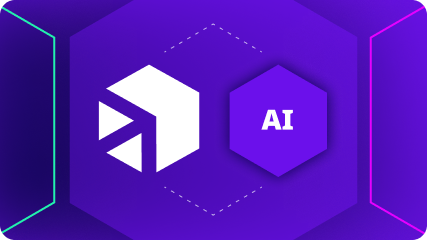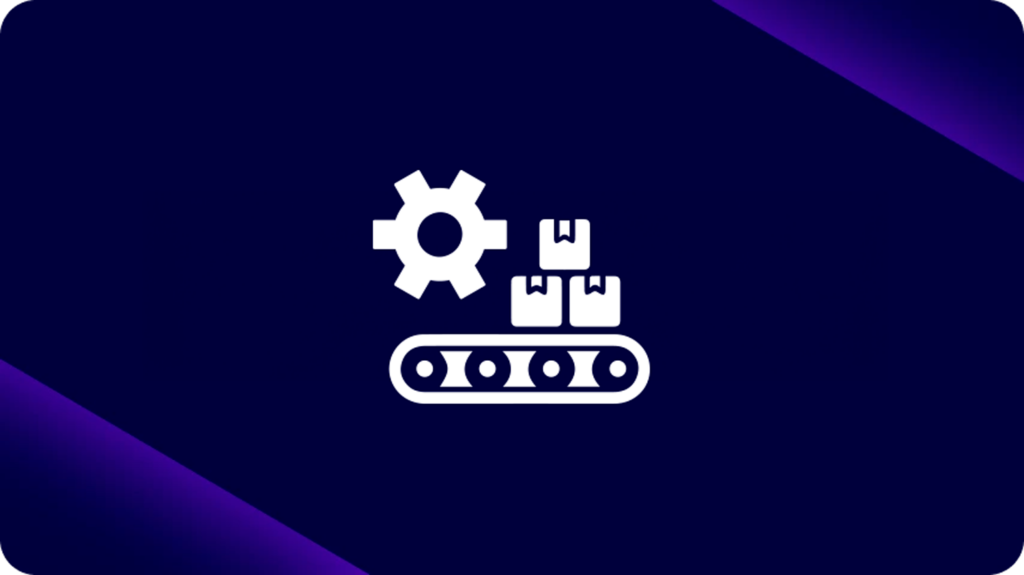November 14, 2022
Se ainda havia dúvidas sobre a necessidade de transformação digital no setor de varejo, a pandemia as eliminou. Lockdowns e preocupações com a saúde forçaram os consumidores a digitalizar seus hábitos de consumo, e os benefícios da transformação digital no varejo tornaram-se dolorosamente evidentes para as marcas que ainda dependiam de arquiteturas legadas. As empresas tiveram que se adaptar rapidamente para sobreviver.
A rápida transição para o comércio digital elevou as expectativas de muitos consumidores, que passaram a exigir a mesma atenção personalizada e experiências sob medida que tinham em lojas físicas, mesmo ao fazer compras online. Negócios que ainda não aderiram à tendência de transformação digital no varejo correm o risco de se tornarem irrelevantes. No entanto, muitas empresas ainda enfrentam dificuldades para integrar sistemas legados às novas tecnologias necessárias para atender às demandas atuais.

>> Agende uma demonstração personalizada com nossa equipe de especialistas e veja como o iPaaS da Digibee trará eficiência ao seu negócio.
O que está segurando os varejistas?
84% dos consumidores dos Estados Unidos dizem que a pandemia afetou seus hábitos de compra. As mudanças mais comuns? Novos métodos de compra e marcasdiferentes . Os consumidores claramente se adaptaram. Mas por que a transformação digital no varejo ainda está tão atrasada?
A jornada de transformação digital pode parecer assustadora. Muitos varejistas investiram fortemente em arquiteturas legadas incapazes de oferecer suporte eficaz para uma experiência omnichannel. Sem essa capacidade, os consumidores não conseguem acessar produtos ou serviços pelos canais de sua escolha – seja no site, app, chatbot ou loja física – e os dados essenciais continuam isolados e inacessíveis.
O que está impedindo a integração?
- Faça o orçamento
- Complexidade e tempo
- Falta de habilidades
- Segurança
- Sistemas Legados
Mas a dependência de uma arquitetura monolítica legada não significa necessariamente que adotar uma estratégia omnicanal esteja além do seu alcance.
3 benefícios da transformação digital no setor do varejo
Os varejistas que integram sistemas legados podem obter uma série de benefícios que oferecem uma vantagem competitiva sobre aqueles que não adotaram a transformação digital.
1. Dados do cliente conectados
“A capacidade de visualizar dados, extrair insights e ter uma única fonte de verdade pode ser sua vantagem sobre os concorrentes que são impedidos por silos e dados de baixa qualidade.”
Miguel Paladino, CEO da RevUnit
Uma estratégia omnichannel eficaz exige que seus sistemas existentes estejam conectados e se comuniquem entre si:
- Gerenciamento de pedidos
- Planejamento de recursos empresariais
- Ponto de venda
- Gestão de relacionamento com clientes
- Plataformas de e-commerce
Na maioria das configurações de arquitetura legada, a única forma de visualizar os dados de todos esses sistemas de uma vez é baixá-los de cada fonte separadamente e combiná-los manualmente – um processo ineficiente que não consegue sustentar a venda por múltiplos canais.
A solução de integração certa permitirá que os dados fluam de forma eficiente entre os sistemas centrais e de suporte, fornecendo insights entre plataformas sobre comportamentos e interesses dos consumidores, para que você possa oferecer experiências personalizadas, independentemente de como os compradores escolham interagir com sua empresa.
2. Supervisão de pedidos e estoque
Outro benefício da transformação digital no varejo é a capacidade de conectar e equalizar seu módulo de pedidos em múltiplos canais, proporcionando uma visão integrada de todos os pedidos e solicitações no seu sistema de gerenciamento de pedidos (OMS), independentemente de onde cada compra tenha se originado.
A integração de sistemas legados também pode melhorar sua capacidade de gerenciar o estoque – outro ponto sensível para os varejistas. Para apoiar completamente uma estratégia omnichannel, seu estoque deve ser 100% integrado, caso contrário, você pode enfrentar uma série de problemas que afetam a lealdade e a experiência do cliente:
- Produtos faltando
- Falta de estoque
- Faturas antecipadas
- Erros de entrega
A visão global proporcionada pela transformação digital no varejo também permite que você aproveite as lojas físicas como centros de distribuição. Muitos grandes varejistas construíram armazéns de estoque centralizados e exclusivos para operações virtuais, mas essa não é uma solução que se traduz para operações de varejo em menor escala.
3. Maior eficiência e agilidade
A integração de sistemas legados facilita a automação de todo o fluxo operacional da sua organização – desde a geração de pedidos em diversos canais até o monitoramento da entrega na casa dos clientes. A automação reduz significativamente os erros operacionais e omissões, aumentando a eficiência e melhorando a experiência do cliente.
Ao conectar o estoque das suas lojas físicas ao seu sistema centralizado, você ganha a capacidade de operar um e-commerce altamente automatizado e de baixo custo, aproveitando as interfaces e sistemas existentes.
Exemplo:
Configure suas transações de pagamento para serem concluídas automaticamente SOMENTE quando os produtos pedidos tiverem sido corretamente separados para o cliente.
Isso garante que os compradores sejam cobrados apenas pelo que você realmente entrega e elimina processos adicionais, como a necessidade de emitir reembolsos para produtos fora de estoque.
Quando sua arquitetura legada dá suporte (e não obstrução) à sua estratégia de transformação digital no varejo, uma abordagem omnichannel está ao seu alcance e a competição com nativos digitais é possível.
iPaaS para transformação digital no varejo
O “novo normal” chegou e ficou. E os benefícios da transformação digital no varejo se tornarão cada vez mais atraentes – mas como alcançá-los? A indústria do varejo nunca para, e as marcas não podem se dar ao luxo de interromper os negócios enquanto reformulam seus sistemas para a transformação digital. É aí que entra o iPaaS – ou plataforma de integração como serviço para empresas.
Descubra como ajudamos a Payless a integrar sua plataforma de e-commerce segura com mais de 200 lojas em 15 países em apenas 30 dias!
O iPaaS empresarial permite que sua marca integre sistemas legados sem a necessidade de destruir e substituir a arquitetura antiga e monolítica. As conexões podem ser construídas sobre as soluções existentes para conectar sistemas antigos (mas essenciais) às novas tecnologias necessárias para apoiar uma oferta omnichannel.
Nós entendemos
A Digibee compreende as pressões enfrentadas pelos varejistas e empresas de bens de consumo. Nossa inovadora plataforma de integração como serviço (iPaaS) permite que você aproveite os benefícios da transformação digital sem longas interrupções ou investimentos iniciais significativos.
Solicite uma demonstração para saber o que podemos fazer por você.








